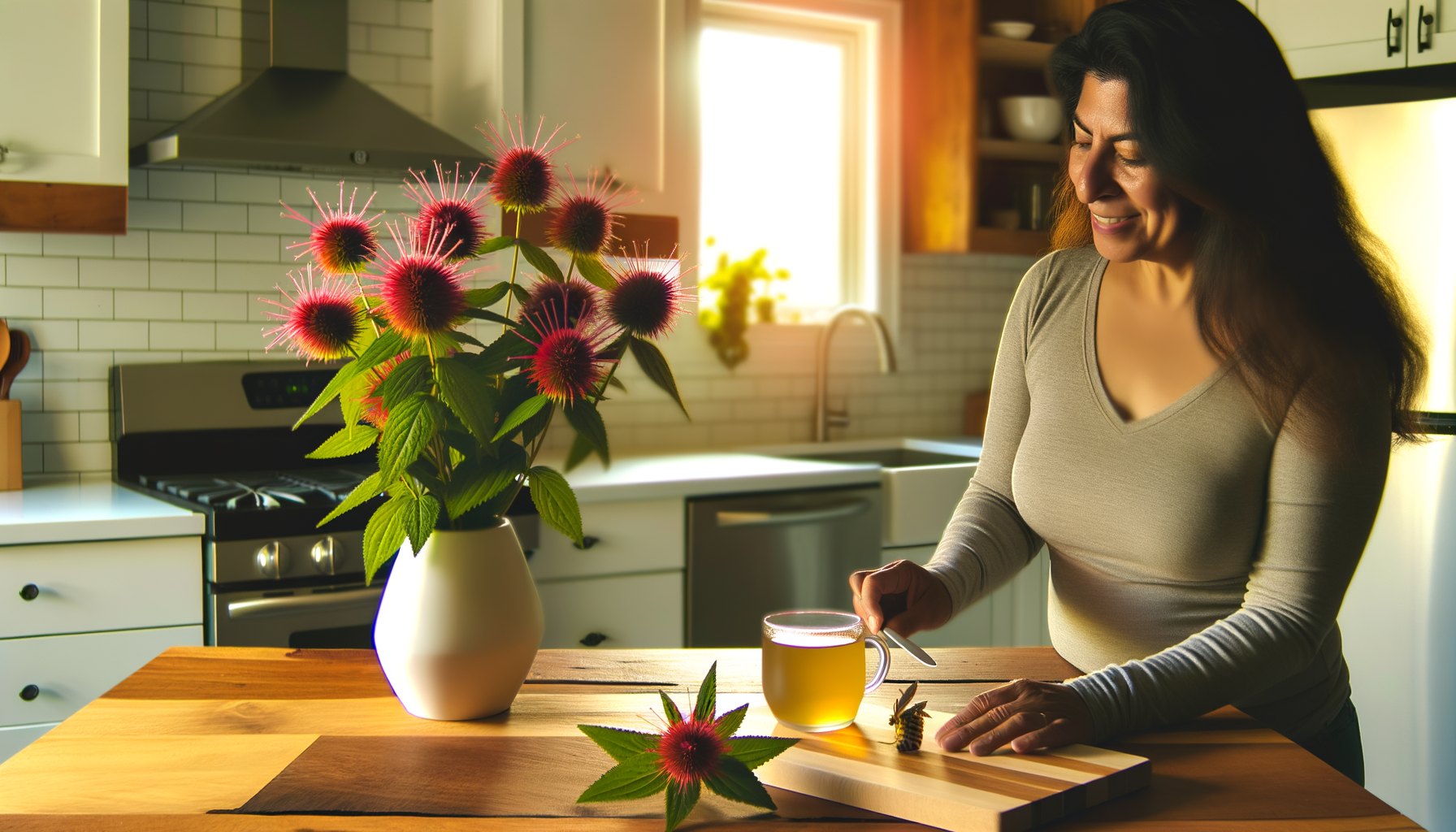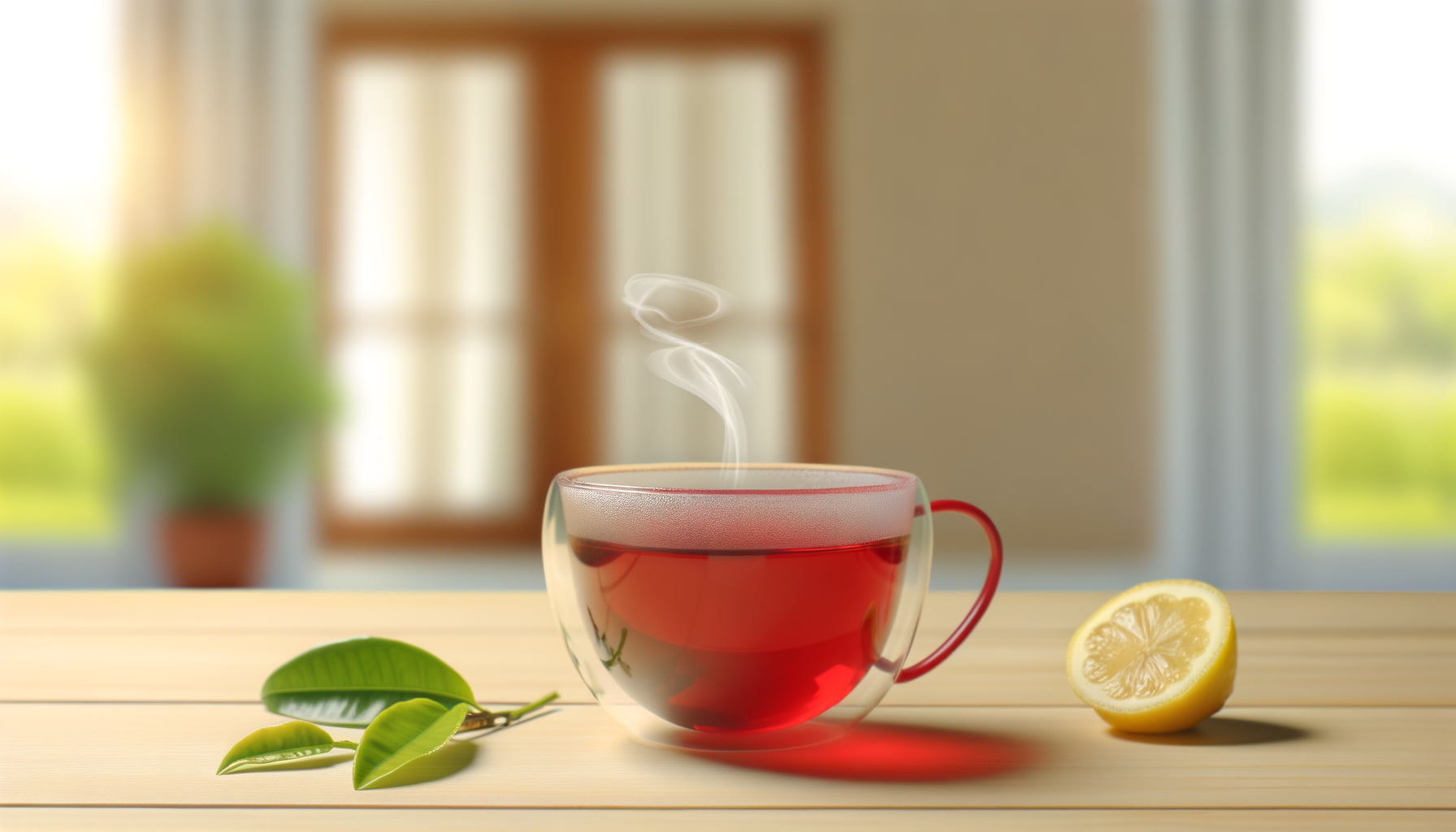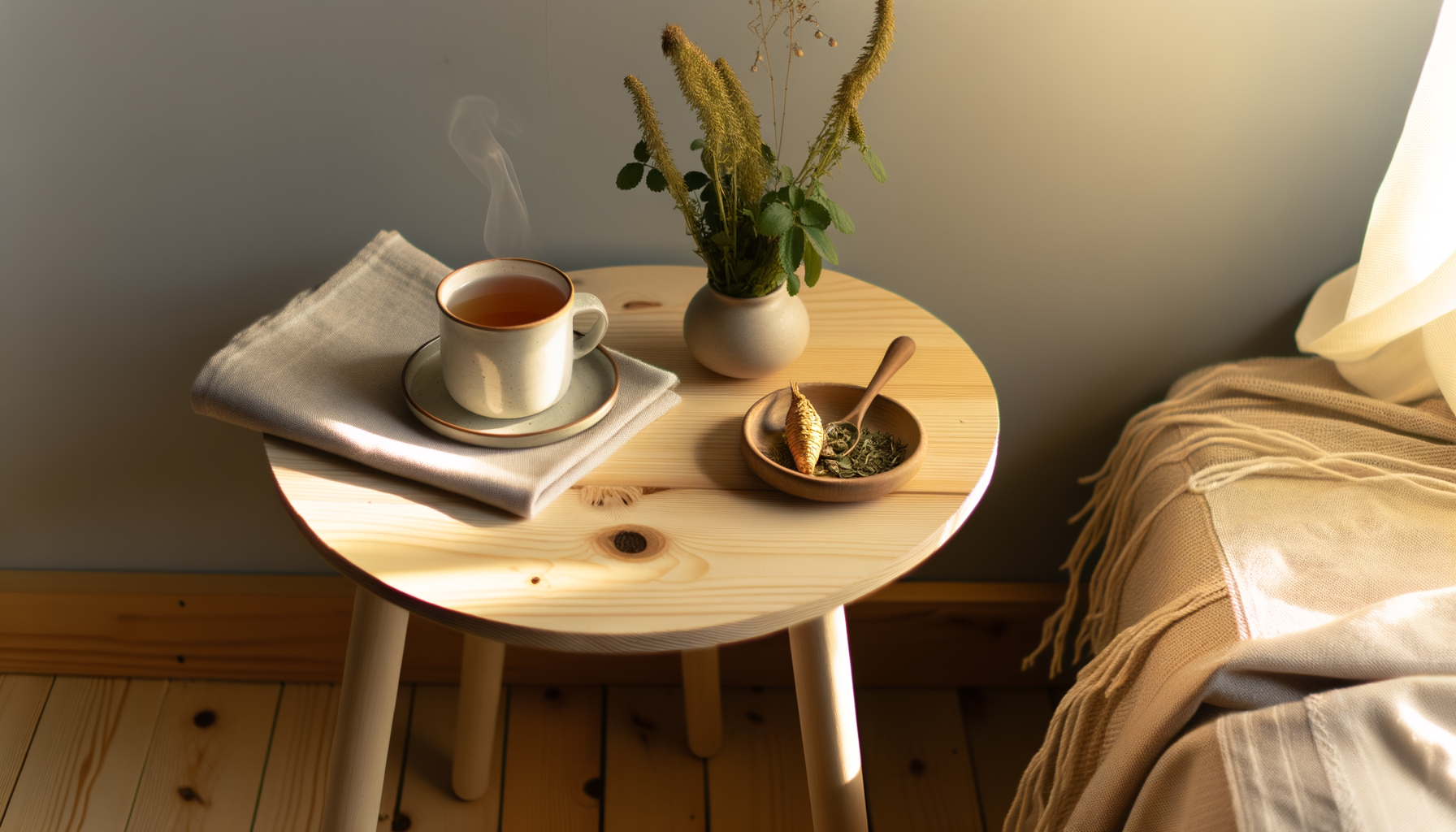
Bee Balm Tea Health Benefits: Nature's Healing Brew for Wellness
Have you ever wondered if there's a delicious herbal tea that can boost your health while delighting your taste buds? Bee balm tea, derived from the vibrant, aromatic Monarda plant, might be one of nature's best-kept wellness secrets. With its distinctive minty-citrus flavor and impressive medicinal properties, bee balm has been treasured by indigenous healers and herbalists for centuries. Today, this remarkable plant is gaining popularity among health enthusiasts seeking natural remedies for common ailments. Let's explore the remarkable health benefits that make bee balm tea a worthy addition to your daily wellness routine.
What is Bee Balm?
Have you ever stumbled upon a vibrant, spiky-petaled flower that looks like it's ready to burst into fireworks? That's bee balm! This eye-catching plant, part of the Monarda species, is more than just a pretty face in your garden.
Native Americans were the first to recognize bee balm's potential. They used it for everything from treating colds to easing digestive issues. When European settlers arrived, they quickly caught on to its benefits and incorporated it into their own folk medicine practices.
But bee balm isn't just an old-world remedy. Today, it's gaining popularity for its versatile uses and delightful flavor. Whether you're sipping it as a tea or using it to brighten up your landscape, bee balm has something to offer everyone.
Nutritional Profile of Bee Balm Tea
You might be surprised by the nutritional punch packed into a cup of bee balm tea. It's not just tasty – it's a veritable treasure trove of vitamins and minerals!
Bee balm is rich in vitamin C, which we all know is great for our immune system. But did you know it also contains calcium, iron, and potassium? These essential minerals contribute to strong bones, healthy blood, and proper muscle function.
What really sets bee balm apart, though, are its plant compounds. Thymol and carvacrol, two powerhouse antioxidants, are the stars of the show. These compounds give bee balm its distinctive flavor and aroma, while also providing numerous health benefits.
When it comes to antioxidant content, bee balm tea holds its own against other popular herbal teas. In fact, it often outperforms chamomile and peppermint in antioxidant capacity. Not bad for a humble garden plant, right?
Immune System Benefits of Bee Balm Tea
Looking to give your immune system a boost? Bee balm tea might be just what the doctor ordered. Research has shown that bee balm possesses impressive antimicrobial and antiviral properties.
Regular consumption of bee balm tea could help you ward off those pesky colds and flu symptoms. It's like having a tiny army of defenders in your cup!
The secret weapon? Thymol. This compound doesn't just fight off infections – it actually helps stimulate your body's immune response. So you're not just treating symptoms, you're giving your whole system an upgrade.
Digestive Health Advantages
Tummy troubles got you down? Bee balm tea to the rescue! This soothing brew has been used for centuries to calm upset stomachs and ease indigestion.
But it doesn't stop there. Bee balm tea can also help reduce bloating and intestinal gas. No more post-meal discomfort!
For those dealing with IBS, bee balm tea might offer some relief. While it's not a cure-all, many people find that it helps manage their symptoms and provides some much-needed comfort.
Stress Reduction and Mental Wellbeing
In our fast-paced world, we could all use a little stress relief. That's where bee balm tea comes in. Its calming effects on the nervous system can help you unwind after a long day.
The thymol and other compounds in bee balm may influence your mood and stress levels in positive ways. It's like a little cup of zen!
Having trouble sleeping? Bee balm tea might be your new bedtime buddy. Many people find that it helps improve sleep quality and address mild insomnia. Sweet dreams, indeed!
Anti-inflammatory and Pain Relief Properties
Aches and pains got you down? Bee balm tea might offer some natural relief. Research has shown that it contains anti-inflammatory compounds that could help ease discomfort.
Got a headache? Before you reach for the pills, try a cup of bee balm tea. Many people find it effective for minor pain management.
Athletes and fitness enthusiasts, take note! Bee balm tea could be beneficial for soothing joint discomfort and muscle soreness after a tough workout.
Skin and Oral Health Benefits
Bee balm isn't just good for your insides – it can work wonders on the outside, too! The tea can be used topically for various skin conditions.
Got a minor cut or scrape? Bee balm tea might help speed up the healing process. It's also great for soothing skin irritations.
Don't forget about your smile! The antibacterial properties in bee balm can support oral health and promote fresh breath. It's like a natural mouthwash!
How to Grow and Harvest Your Own Bee Balm
Ready to add bee balm to your garden? Great news – it's relatively easy to grow! The specific requirements will depend on your climate zone, but in general, bee balm loves sunny spots with well-drained soil.
When it comes to harvesting, sustainability is key. Only take what you need, and be sure to leave enough for the plant to thrive. Your bee balm (and local pollinators) will thank you!
For the best flavor and medicinal properties, harvest your bee balm just as the flowers begin to open. Early morning, after the dew has dried, is the perfect time.
Brewing the Perfect Cup of Bee Balm Tea
Ready to enjoy your own cup of bee balm bliss? Here's how to brew it to perfection:
- Start with fresh or dried bee balm leaves and flowers.
- Use about 1 teaspoon of dried herb (or 1 tablespoon fresh) per cup of water.
- Heat water to just below boiling (around 200°F).
- Steep for 5-10 minutes, depending on desired strength.
Want to jazz it up? Try adding a squeeze of lemon or a drizzle of honey. You can also blend bee balm with other herbs for a custom tea experience.
Potential Side Effects and Precautions
While bee balm is generally safe for most people, it's always wise to be cautious. Some individuals may experience allergic reactions, particularly those with sensitivities to plants in the mint family.
If you're taking any medications, it's a good idea to check with your healthcare provider before adding bee balm tea to your routine. Some herbs can interact with certain medications.
Pregnant or breastfeeding? It's best to err on the side of caution and avoid bee balm tea until you've consulted with your doctor. Better safe than sorry!
Remember, moderation is key. While bee balm tea offers many potential benefits, it's not a miracle cure. Enjoy it as part of a balanced, healthy lifestyle for the best results.
Conclusion
Bee balm tea offers an impressive array of health benefits, from boosting immunity and aiding digestion to reducing stress and supporting skin health. This versatile herbal remedy combines centuries of traditional wisdom with modern scientific validation, making it a valuable addition to any wellness routine. Whether you're seeking natural relief from specific ailments or simply looking to enjoy a delicious, health-promoting beverage, bee balm tea deserves a place in your tea collection. Try brewing a cup today and experience firsthand how this remarkable plant can contribute to your overall wellbeing while delighting your senses with its unique flavor profile.


